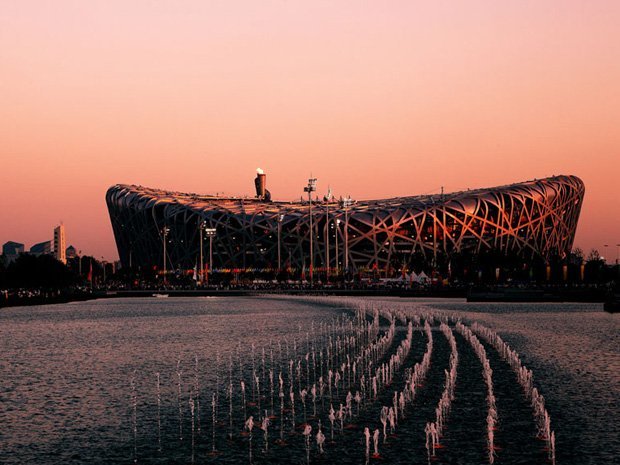
- Australia's largest state hits record-high COVID-19 cases despite weeks of strict lockdown. 'It's a tinderbox ready to explode,' one official said.
- eToro says crypto made up 73% of trading commissions in the last quarter, as retail customers dived in
- A flight attendant says she was too exhausted to report a passenger who shoved her when a flight was overbooked: report
- US jobless claims climb for first time in 5 weeks, to 353,000
Pic: Wikipedia
THE 2008 BEIJING Olympics were huge for China, a $42 billion chance to put the country on the world stage. Half a decade later, however, it’s not clear whether that money was well-spent.
Sun Liping, a Professor of Sociology at Tsinghua University, argues that the games had a negative effect on political life in the country. In a recent post, translated by Hong Kong University’s China Media Project, Sun wonders if the games resulted in a shift in Chinese politics from progress and change to “control and stability preservation”.
Sun writes:
I’ve long thought that the impact of the Beijing Olympics on China was very deep, much more than a matter of dollars and cents. The highly cautious attitude [of the leadership] in facing such a grand event of this kind profoundly impacted China’s historical path even afterward. The Olympics marked the beginning, it can be said, of the ascendance of the stability preservation regime in China. Looking back now, it might be that the Olympics were something we did that we ought not to have done.
In the 21st century, China’s two most obvious characteristics have been the inflation of power (权力膨胀) and the failure of power (权力溃败), and the way the two of these have woven together. The process of the strengthening of the government’s capacity to extract resources, which had already begun before, concentrated more and more money in the hands of the government [during this decade]. And he who has wealth speaks loudest.
Meanwhile, with the successful hosting of the [Beijing] Olympic Games, the psychology of caution [that had emerged in the years ahead of the Games] transmuted into a fantasy of a national system concentrating forces to do great things. It was against this backdrop that the failure of power became more and more severe. As big money meant bigger influence an attitude of wantonness prevailed, and the national system fostered and encouraged the arbitrary and capricious use of power.
Sun’s article is also a wider critique of the changes in China that emerged under former President Hu Jintao. As David Bandurski notes when writing for the China Media Project, Sun also happened to be new president Xi Jinping’s PhD advisor at Tsinghua University.
The criticism from Sun is just the latest argument against the games. With multi-million dollar stadiums sitting empty and the city’s crumbling infrastructure remaining underfunded, many wonder what legacy the games have left.

